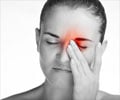Highlights:
- Nitrate reducing microbes are normally present in our oral cavities and gut.
- They promote our heart health by increasing blood flow to the heart and reducing blood pressure.
- If found in higher levels than normal, they may cause migraine headaches.
"There is this idea out there that certain foods trigger migraines--chocolate, wine, and especially foods containing nitrates," says Antonio Gonzalez, a programmer analyst in the laboratory of Rob Knight at UC San Diego, and lead author on the study. "We thought that perhaps there was a connection between someone's microbiome and what they were eating."
Details and Results of the Study
Gonzalez and his colleague Embriette Hyde sequenced bacteria found in oral cavity samples from 172 participants, and 1,996 fecal samples from healthy participants. The participants were earlier asked to complete surveys asking whether they suffered from migraine headaches.
The results of the sequencing indicated to them the qualitative and quantitative differences in the bacterial population between migraine sufferers and those who did not. With regards to bacterial community composition, the investigators did not find any significant differences in the fecal or oral samples of migraineurs and non-migraineurs.
"We know for a fact the nitrate-reducing bacteria are found in the oral cavity," says Hyde, who is the project manager for the American Gut Project in the Knight laboratory. "We definitely think this pathway is advantageous to cardiovascular health, but now we have a potential connection to migraines as well."
Many persons, who suffer from migraine headaches have noticed a link between consuming nitrates and their severe headaches. Patients with heart disease, who take nitrates for chest pain or congestive heart failure report severe headaches as a side effect.
The authors of the study feel that we may have a mutually beneficial symbiotic relationship with bacteria in our oral cavities, which do promote our cardiovascular health. But in some people, an excess of nitrate-reducing bacteria in the mouth could also lead to migraines, rules the study.
Nitrates, occurring in certain foods such as processed meats, green leafy vegetables, and in certain medicines, are reduced to nitrites by microbes found in the mouth. When circulating in the blood, these nitrites become converted to nitric oxide (NO) under certain conditions. Nitric oxide is a powerful vasodilator that promotes cardiovascular health by increasing coronary blood flow and reducing blood pressure.
However, nitrates also cause vasodilation of the blood vessels supplying the brain, which may be responsible for the severe headaches. Vasoconstricting agents such as ergotamine are generally administered for relief from migraine headaches.
Future Research Plans
Gonzalez and Hyde say that they plan to study more well-defined groups of patients, segregated on the basis of the different types of migraines. They could then determine if the microbes in their oral cavities actually expressed nitrate-reducing genes, estimate levels of their circulating NO and study how it correlates with their migraine status.
Perhaps far into the future, Gonzalez says, "We will have a magical probiotic mouthwash for everyone that helps your cardiovascular health without giving you migraines." But for now, he says, "If you suspect that nitrates are causing you migraines, you should try to avoid them in your diet."
Source-Medindia














